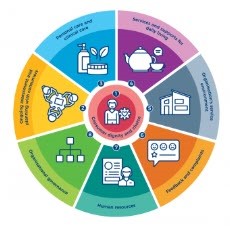Professor Brendan Murphy, Australia’s Chief Medical Officer, has recently issued advice to all aged care providers about COVID-19 (novel coronavirus). In his letter, as well as stressing the importance of infection control and preparedness for health emergencies, Professor Murphy outlined the factors aged care services should consider in relation to emergency planning:
• first steps if infection is suspected or identified (e.g. seeking medical assessment, diagnosis and contact with local public health officials, if needed);
• arrangements to ensure adequate care of the infected individual (e.g. staffing, isolation/quarantine within the facility, medical care, further liaison with public health officials);
• protection measures for other residents, visitors and staff
• notification advice to families, carers and relevant authorities.
The importance of infection control to ensuring consumers’ safety, health and wellbeing is underscored in Standard 3 (Personal care and clinical care) of the Aged Care Quality Standards. Requirement 3(g) in this standard requires aged care services to demonstrate “minimisation of infection-related risks through implementing standard and transmission-based precautions to prevent and control infection”.
Additionally, Standard 8 of the Quality Standards requires providers to have clinical governance arrangements in place that ensure safe and quality care for people receiving aged care – which can include effective organisation wide systems for preventing, managing and controlling infections.
Read more:
Australian Guidelines for the Prevention and Control of Infection in Healthcare (2019) (.pdf)
How to wash and dry hands with soap and water (.pdf)
How to clean hands using an alcohol based liquid or hand rub (.pdf)

